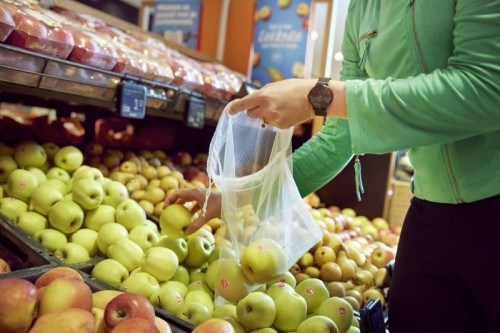Global commodity prices are rising, and experts say this will give rise to higher prices in supermarkets from the beginning of next year.
Consumer prices in Belgium are currently down again after the steep rises in 2020 during the coronavirus pandemic, but this won’t remain the case next year.
According to the Flemish infocentre for agriculture and horticulture (VILT), prices will rise in 2022 and consumers will see this on the aisles of their grocery stores.
Over the past year and a half, several commodities have seen tangible price increases - some of up to 17 percent - as is the case for wheat, sugar, meat, dairy, vegetable oils and more.
In June, FAO, the Food and Agriculture Organisation of the United Nations, reported that global food prices had risen 40 percent since May and were at their highest level in a decade.
Nicholas Courant of the Federation of the Belgian Food Industry (FEVIA), cited several causes in an interview with Het Laatste Nieuws.
“There are climate aspects, for example the coffee harvest in Brazil and the wheat harvest in Canada were disappointing,” he said.
“There are the after-effects of the pandemic, which has not only caused a sharp change in consumer behaviour but has also thrown the entire global logistics chain into disarray, with transport costs seven to 10 times higher for a sea container.”
Courant said that even geopolitical causes play a role: for instance, some countries are keeping raw materials to themselves, which is increasing scarcity.
In Belgium, poor weather conditions this summer are having an effect in the form of poor harvests.
With wheat, for example, a poor harvest causes rising flour prices, which will be passed on in the price of a loaf of bread, which is expected to be up to 10 cents more expensive next year.
So far, the increased raw material prices have not translated into a more expensive shopping cart for consumers this year, though it should be noted that prices in Belgian supermarkets are already on the high side and were given an extra push last year by the coronavirus crisis.
According to Pierre-Alexandre Billiet, CEO of Gondola, Belgian consumer prices are 12 percent higher than in neighbouring countries.
The Gondola Society is a network organization of more than 300 active members in the retail sector.
Billiet, who is also a professor of retail management and consumer goods at the Solvay Business School, mentioned an expected price increase of about 5 to 6 percent in an opinion piece in Gondola Magazine.
Billiet said that the Belgian market follows global trends and predicts grocery chain Colruyt to come out as a winner in the price increases next year.
“Data analyses show that Colruyt thrives in times of inflation when consumers become money-conscious,” Billiet wrote.
“It’s the only retailer that has clear agreements with the brands. It guarantees the lowest price and can meet the reduced purchasing power of the consumer. Research shows that it is not monetary purchasing power that prevails in post-crisis situations, but mimicry: consumers who want to buy something, do so.”
He explained that during this period, emotions play a more important role than rational considerations about whether someone can afford to buy a product.
“Retailers have a variety of tricks at their disposal to maintain purchasing power elasticity in such a context, such as ‘buy now, pay later’, subscriptions, etc, a phenomenon that we are also seeing more and more today,” wrote Billiet.
While supermarkets themselves cannot yet answer the question of exactly how great price increases will be and when they will arrive, much depends on the negotiations of new contracts which take place in autumn. Roel Dekelver of Delhaize emphasised that the supermarket is doing “everything possible to maintain competitive prices for customers.”
But FEVIA says it’s a certainty that the higher costs will be passed on to the supermarkets.

